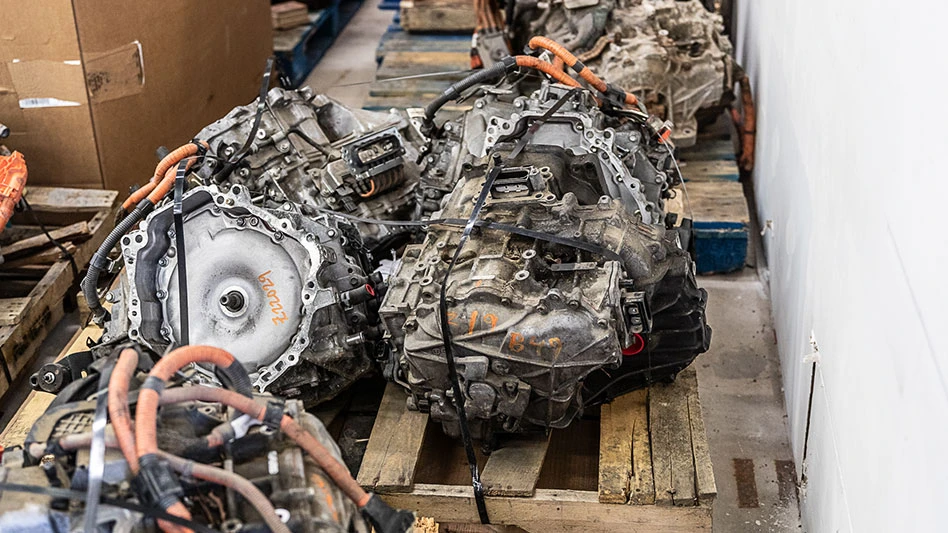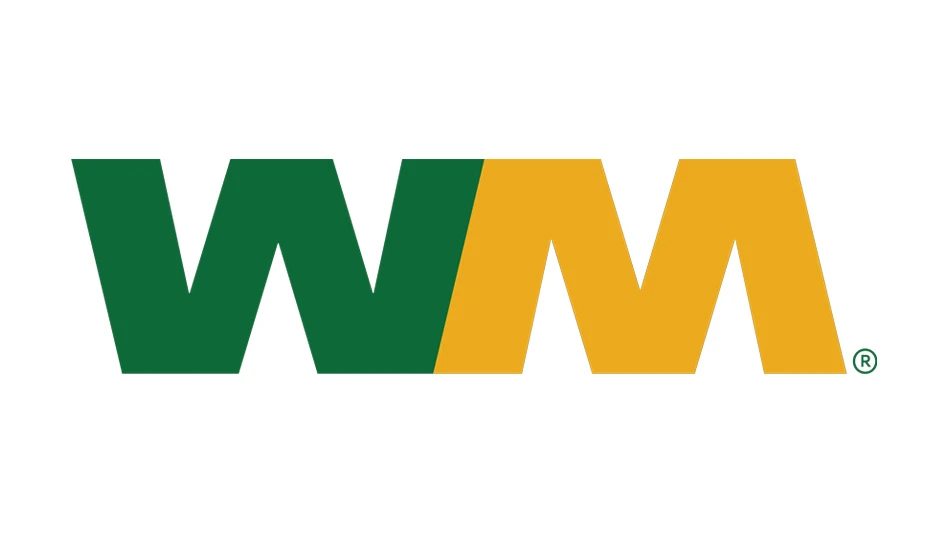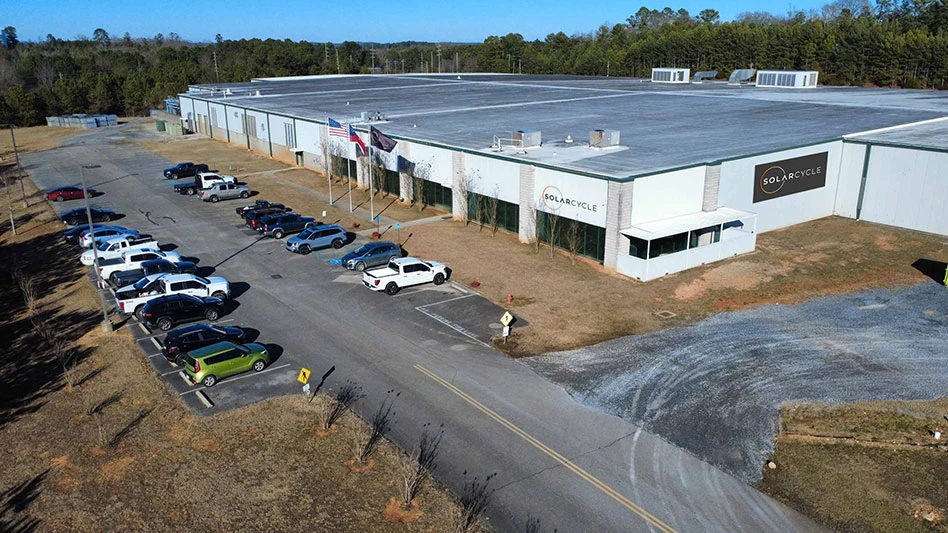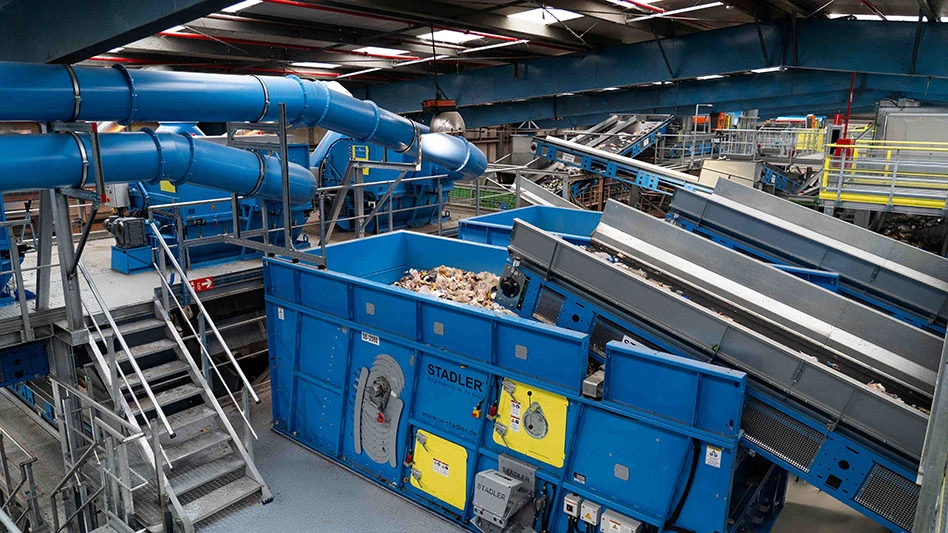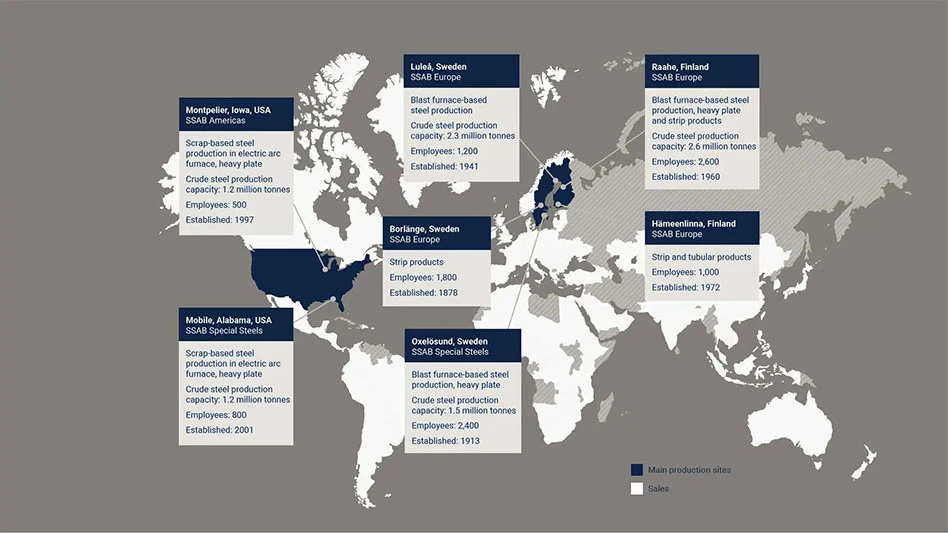Ford Motor Company and Alcan Inc. have launched the North American automotive industry's first "closed-loop" recycling program for aluminum sheet scrap.
Under the new program, Ford recovers aluminum process scrap from its Chicago Stamping Plant and returns it to Alcan for recycling directly back into autobody sheet. Previously, the recovered aluminum was sold into the general scrap market in combination with other metals, thus diminishing both its quality and value and making it unsuitable for re-use in autobody applications.
The new "closed-loop" process provides significant economic and environmental benefits for both corporations.
The aluminum scrap is generated during the stamping of aluminum hoods for the Ford Explorer and the Ford F-150 and Ranger pick-up trucks, as well as hoods for the Lincoln Town Car. Aluminum "blanks" made of an automotive aluminum alloy, known as AA6111, are cut to the required shape at the Chicago Stamping Plant and the trimmed edges are collected for recycling.
The Chicago Stamping Plant is Ford's highest-volume user of aluminum sheet metal. Nearly 1.3 million hoods are stamped at the plant annually, generating about 13 million pounds of process scrap to recycle.
Key to the success of the Chicago Stamping Plant process is the ability to segregate the AA6111 scrap from other steel and related byproducts generated in the plant. Ford invested nearly $400,000 in modifications to the existing separation system to produce "clean" aluminum scrap. This higher-value material is then bundled, strapped with non-metallic banding and shipped to Alcan's aluminum plant in Oswego, N.Y., where it is remelted and rolled once again into automotive sheet. This loop can be repeated virtually indefinitely because aluminum does not degrade when recycled.
"The closed-loop recycling program we've launched with Ford allows our customer to extract maximum value from aluminum," said Tom Gannon, vice president, Alcan Automotive. "Up to 85 percent of the aluminum's primary value can be retained by segregating the scrap and turning it back into automotive sheet metal."
"The recycling of aluminum requires only five percent of the energy used to produce the primary metal," explained Andy Acho, Ford Motor Company's worldwide director of Environmental Outreach and Strategy. "This is an important factor in reducing the total cost of this component to Ford. Moreover, recycling eliminates 95 percent of the greenhouse gas emissions associated with primary production, thereby providing tremendous environmental advantages."
Both Ford and Alcan are members of the Auto Aluminum Alliance, a collaborative research effort between the automotive and aluminum industries that is developing a new process using advanced lasers to further improve the sorting of metals from scrapped vehicles. Such advanced recycling technologies promise to further improve economic efficiency by recovering greater quantities of high-value aluminum from motor vehicles.
Latest from Recycling Today
- ArcelorMittal legal battle with Italy continues
- IP to spin off non-North American operations
- Flexible Film Recycling Alliance report outlines progress
- RERF opens Avagliano award nominations
- Eriez expands European sales network
- Gränges increases sales volume in 2025
- Aduro selects Netherlands as site for industrial scale-up facility
- Nasco-Op declares dividend
